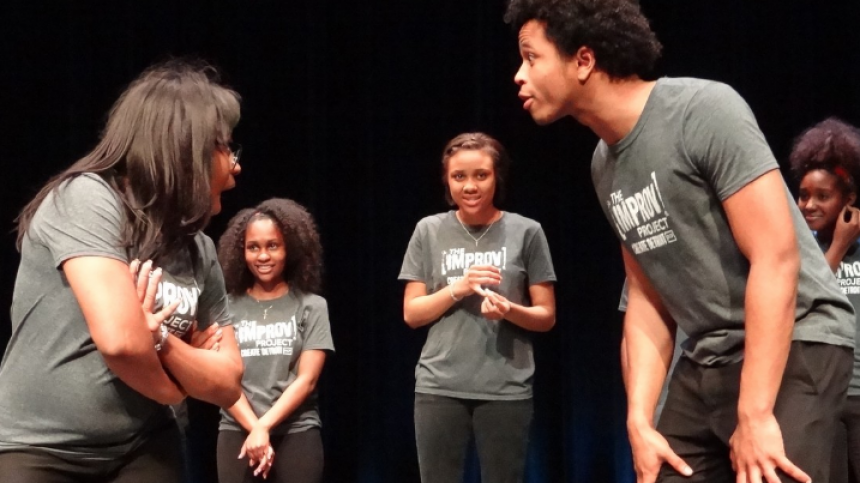A former economic development consultant turned feline specialist veterinarian, Dr. Beth Hagenlocker (DVM ’00) has had a winding career path that has seen her work in clinical practice, cofound a nonprofit, and now create a veterinary communications consulting firm based on skills that come from improvisational theater, or improv.

Hagenlocker’s initial draw to veterinary medicine came about in an unusual way. While working for a consulting firm in Seattle doing cost-benefit analysis for large capital projects, including a primate center and a fishery, Hagenlocker became interested in the work that the veterinarians on those teams were doing. She was inspired enough to begin prerequisite coursework for veterinary school, and in 1996, she began the program at MSU.
After graduating in 2000, Hagenlocker’s practice focused on feline medicine. “I've always had a special interest in cats because their physiology, behavior, and social structure are somewhat different from dogs and humans,” says Hagenlocker. She worked in clinical practice for many years as an associate and then as a medical director and practice owner.
While in Detroit for a feline internship, Hagenlocker met the person who would eventually become her husband. “I guess you could say his cat, Eggemoggin, introduced us,” says Hagenlocker. He was a Second City alum, and his love of improv soon rubbed off on Hagenlocker as she began to see the innovation and confidence that comes from having an improviser’s mindset. She sold her feline practice in 2013 to cofound The Detroit Creativity Project, a nonprofit whose mission is to empower and inspire Detroit’s young people through improvisation. The program partnered with the University of Michigan to collect program evaluation data, which indicates that participants of the program gain self-confidence, build valuable social skills, and experience reduced social anxiety.

When the COVID pandemic hit, a new use case for improv arose for Hagenlocker. Client communication at most veterinary practices became very limited, and she started receiving messages from friends and followers on social media, asking her to help explain their veterinarians’ recommendations. She had seen firsthand that improv students develop the ability to listen and build positive relationships, and she began to think about how an improv framework might be able to support conversations between veterinarians and clients.
In 2021, Hagenlocker combined her passion for veterinary medicine with her love of improv and founded Grace Veterinary Inc., a consulting firm that offers improv training for veterinary teams of all sizes and specialties. Her interactive workshops are specifically designed to connect improv techniques to skills needed in daily veterinary practice. The syllabus for the training is customized to each client’s needs, and each session focuses on learning in a safe, inclusive setting. After each exercise, participants engage in a discussion that ties the improv back to a medical setting.
Because improv is a form of unscripted live theater in which the plot and characters are created on the spot, what participants say and do depends completely on what they hear and see their partners do. “Our clients are often the best source of information about our patients,” Hagenlocker says. “They live closely with them and can be keen observers of changes in their behavior, which can be one of the earliest signs of changes in their health. Improv training helps a great deal with that because you're truly listening and working together in a way that leads to a good result for the patient over the long term.”
Today, Hagenlocker continues her work with both The Detroit Creativity Project and Grace Veterinary to share the valuable skills that improv training offers. “I think everyone should take an improv class!” Hagenlocker says. “I know improv can feel a little intimidating at first if you don't have a theater background. I don't. I've seen people—including me—quickly overcome that. There's just something very fun and freeing about improv that's hard to resist.”
Hagenlocker’s workshops are offered through Grace Veterinary online at www.vetmedimprov.com.
In addition to the incredible work she’s doing, Hagenlocker also set up the Grace Fund for Stray Animals here at the MSU Veterinary Medical Center. This fund supports stray animals who are brought into the Hospital for treatment. Help provide care for these animals by contributing to the Grace Fund.
